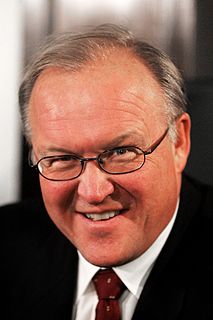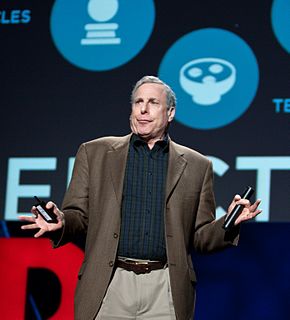Top 1200 Nuclear Proliferation Quotes & Sayings - Page 9
Explore popular Nuclear Proliferation quotes.
Last updated on December 20, 2024.
In some ways more painful is the fact that their experience appears to be fading from the collective memory of humankind. Having never experienced an atomic bombing, the vast majority around the world can only vaguely imagine such horror, and these days, John Hersey's Hiroshima and Jonathan Schell's The Fate of the Earth are all but forgotten. As predicted by the saying, 'Those who cannot remember the past are condemned to repeat it,' the probability that nuclear weapons will be used and the danger of nuclear war are increasing.
[A] new generation, innocent of the divisions of the Cold War, this coming-of-age. ... If its members do not feel the urgency to escape the nuclear danger that some of its parents felt, neither has it developed the deep attachment to nuclear arms also often found among their parents, including most of the governing class. ... The call for abolition should therefore be, among other things, a call from an older generation to younger one.
The scientists who made the atomic bomb are, in my sense, people with a tragic destiny. You know, there was the US race with Nazi Germany and good evidence that the Germans were more advanced in nuclear physics, and we had to get the bomb first. But then there was the use of that dreadful weapon, or instrument of genocide, and many of the more sensitive scientists turned quickly into anti - nuclear people - and very effective ones.
Terrorists do not actually need nuclear weapons. They have been conveniently supplied with 103 nuclear power plants scattered throughout the United States (438 of these deadly facilities exist throughout the world). A planned meltdown at one of these facilities would make the World Trade Center attacks seem like child's play. The massive concrete containers protecting the reactors are not strong enough to withstand the impact of a jumbo jet.
I think it is less the limited amount of information than the filters that information about the Middle East must pass through before being fairly addressed in the mainstream media. In more intellectual and geopolitical terms, the perceptions of the region are distorted by a combination of Orientalism and the priorities of the state of Israel, including the refusal to discuss the relevance of Israel's nuclear weapons arsenal in the context of addressing Iran on its nuclear program.
During the nineteenth century, the rapid emergence and proliferation of new manufacturing methods and building technologies led to the establishment of polytechnic schools that concentrated on the practicalities of engineering and construction rather than the niceties of stylistic correctness or adherence to established precedent.
Letting the perfect be the enemy of the good is one of the reasons we have a coal-dependent infrastructure, with the resulting environmental impact that all of us can see. I suspect environmentalists, through their opposition of nuclear power, have caused more coal plants to be built than anybody. And those coal plants have emitted more radioactive material from the coal than any nuclear accident would have.
Peace is not just the absence of war and conflict; it goes well beyond that. Peace must be fostered within the individual, within the family and within society. Simply transferring the world's nuclear weapons to a museum will not in itself bring about world peace. The nuclear weapons of the mind must first be eliminated.
I want to say, and this is very important: at the end we lucked out. It was luck that prevented nuclear war. We came that close to nuclear war at the end. Rational individuals: Kennedy was rational; Khrushchev was rational; Castro was rational. Rational individuals came that close to total destruction of their societies. And that danger exists today.
The invasion of Iraq will surely go down in history as one of the most cowardly wars ever fought. It was a war in which a band of rich nations, armed with enough nuclear weapons to destroy the world several times over, rounded on a poor nation, falsely accused it of having nuclear weapons, used the United Nations to force it to disarm, then invaded it, occupied it, and are now in the process of selling it.
Both the President and Mr Gorbachev have said that they want to see a world without nuclear weapons. I cannot see a world without nuclear weapons. Let me be practical about it. The knowledge is there to make them. So do not go too hard for that pie in the sky because, while everyone would like to see it, I do not believe it is going to come about.
In the mid-1980s, operating problems took [nuclear] plants off-line so often that, on an annual basis, they operated at only about 55 percent of their rated total generating capacity. Today, as a result of several decades of experience and an intense focus on performance ... nuclear plants in the United States operate at over 90 percent of capacity. That improvement in operating efficiently is so significant in its impact that it can almost be seen as a new source in electric power itself.
Russia is modernizing its nuclear systems. They're moving toward more effective tactical nuclear systems. They're moving toward delivery systems designed to evade anti-ballistic missile defenses. The Russians are investing, by the way, in robotic weapons, including a potential robotic tank. Their investment in new technology, I suspect, outweighs all of the European defense research and development spending combined.
American envoys came to see me before the crisis in Iraq and asked me to say that there were nuclear weapons in Iraq. I refused. They even told me that things would go well for Belarus in terms of investments, etc. All I had to do was to support them. I told them that I couldn't do it because I knew that there were no nuclear weapons there.
I think we should be organized in something called an Alliance Against Nuclear Terrorism. In the same way that NATO was the great alliance of the Cold War and served a great purpose then, we need now, in the war on terrorism, a new alliance, the mission of which would be to minimize the risk of nuclear terrorist attacks, and the members would agree to sign on to the gold standard.
I know we need more nuclear power in order - nuclear power, after all, is not dependent on fossil fuels and emits no greenhouse gases. I believe we're going to be able to have coal-fired plants that have zero emissions. We need to work on carbon sequestration technologies. I mean, there's a lot we can do together and achieve the objective, which a lot of people want, which is the reduction of greenhouse gases, and at the same time, have viable economic growth.
The Iranians know that if they develop nuclear weapons, they will be in tremendous jeopardy from military capabilities of their neighbors and of the United States. I am not predicting what will happen in 2013, but I do think it is a crucial year. I hope we can make it clear to the Iranians that we do not object to them having peaceful use of nuclear power. But when they enrich Uranium to a 20 percent level, people think they are going for the bomb. Their uranium enrichment program is a real danger.
The existence of nuclear weapons presents a clear and present danger to life on Earth. Nuclear arms cannot bolster the security of any nation because they represent a threat to the security of the human race. These incredibly destructive weapons are an affront to our common humanity, and the tens of billions of dollars that are dedicated to their development and maintenance should be used instead to alleviate human need and suffering
Nuclear man is the man who realizes that his creative powers hold the potential for self-destruction. He sees that in this nuclear age vast new industrial complexes enable man to produce in one hour that which he labored over for years in the past, but he also realizes that these same industries have disturbed the ecological balance and, through air and noise pollution, have contaminated his own milieu.
Without a deal [with Iran], the international sanctions regime will unravel with little ability to reimpose them. With this deal, we have the possibility of peacefully resolving a major threat to regional and international security. Without a deal, we risk even more war in the Middle East and other countries in the region would feel compelled to pursue their own nuclear programs, threatening a nuclear arms race in the most volatile region in the world.
Iran has been calling for it for years, and the Arab countries support it. Everyone except the United States and Israel support it. The U.S. won't allow it because it means inspecting Israel's nuclear weapons. The U.S. has continued to block it, and in fact blocked it again just a couple of days ago; it just wasn't widely reported. Iran's nuclear program, as U.S. intelligence points out, is deterrent, and the bottom line is that the U.S. and Israel don't want Iran to have a deterrent.
Physicists only talk to physicists, economists to economists-worse still, nuclear physicists only talk to nuclear physicists and econometricians to econometricians. One wonders sometimes if science will not grind to a stop in an assemblage of walled-in hermits, each mumbling to himself words in a private language that only he can understand.
In the near future, despite the development of alternative energy, when you look at the economics and environmental standards, then there's no other source of primary energy in the world than natural gas. Well, perhaps there is nuclear energy but there are also a lot of issues there and there are opponents of nuclear energy. Gas doesn't have those opponents. But there is a country that is, obviously, the world leader in gas reserves. That's our country, the Russian Federation.
The Europeans are starting to show that they're finally serious about the Iranian nuclear program, and they appear to be willing to use sticks against Iran. So I think it is imperative that the United States sit down with the Europeans and say, "Let's make this very clear to the Iranians. Either they can give up their nuclear program and their support for terrorism, in which case we'll given them all kinds of benefits. Otherwise, we'll join in comprehensive, multilateral sanctions that will cripple their very fragile economy."
I'm not against international institutions that would try to tackle global warming. But the way to go, at least in the short run, is to go to nuclear power. It's amazing to me that people who are so alarmed about global warming are so reluctant to adopt the obvious short-term solution - the bridge until the day when we have affordable renewable energy - of nuclear power.
The real concern is that Iran would do what Pakistan did. Pakistan wanted nuclear weapons, like Iran, purely for defensive reasons - to defend itself against India. The problem was that once Pakistan acquired the weapons, it allowed the country to be more aggressive. So they stepped up their support for the Kashmiri terrorists, and it led very quickly to the Kargil crisis in 2000, which almost sparked a nuclear war between India and Pakistan.






















































